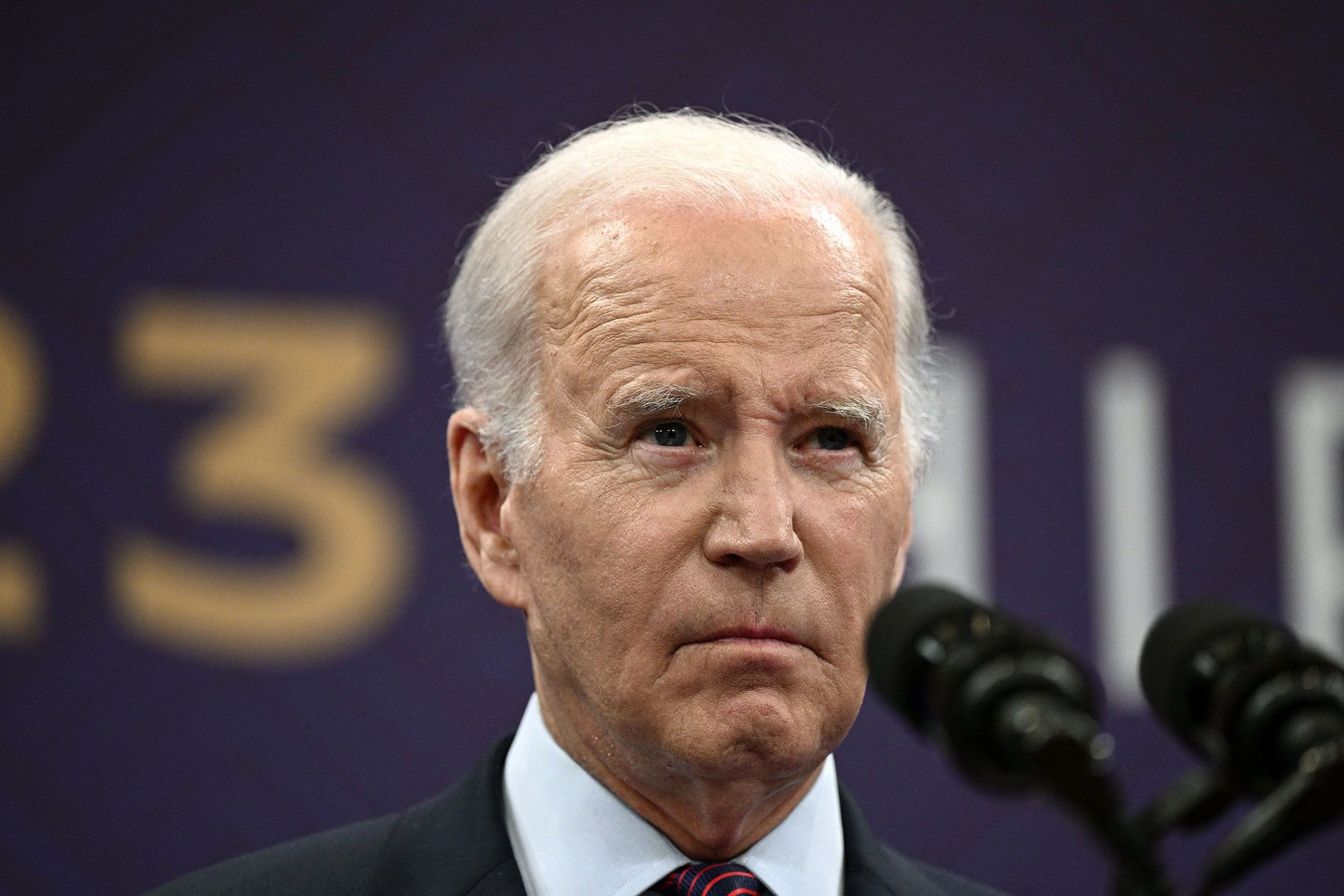The White House released its first-ever national strategy to combat antisemitism on Thursday, touting over 100 new programs to combat record-high levels of anti-Jewish attacks in the U.S. in recent years.
The 60-page plan was released following a press conference Thursday at the White House with Second Gentleman Doug Emhoff, outgoing White House Domestic Policy Advisor Susan Rice and Homeland Security Advisor Dr. Elizabeth Sherwood-Randle. The administration’s strategy includes annual threat assessments by the FBI and Homeland Security, tasks the Department of Education with creating programs about fighting antisemitism for schools, includes antisemitism in diversity, equity and inclusion training for federal employees and pushes online platforms to have zero-tolerance policies for hate speech.
Democratic President Joe Biden said in a video released on his Twitter account that the plan is the most “ambitious and comprehensive” strategy against the “venom” of antisemitism.
“In the past several years, hate has been given too much oxygen, fueling a record rise in antisemitism,” Biden said. “Its simply wrong.”
Under the new strategy, the FBI and the National Counterterrorism Center will begin annual threat assessments of ” antisemitic drivers of transnational violent extremism.” The decision comes in light of recent FBI hate crime statistics showing anti-Jewish attacks increased to 814 incidents in 2021, with assaults increasing by 16% from 2020.
The plan tasked The Holocaust Memorial Museum with creating a U.S.-based Holocaust education research center to study Holocaust education in the U.S. and create materials and research to improve Americans’ awareness of the subject. The DOE is similarly launching an Antisemitism Awareness Campaign this year by working with schools to “amplify their efforts … that need help responding to an uptick in antisemitic activity.”
Multiple sports leagues will meet at an event hosted by the Foundation to Combat Antisemitism to discuss “all forms of hate” in sports, according to the plan. Social media is also a priority for the White House.
The White House partnered with over a dozen advocacy groups including the American Jewish Committee, National Basketball Players Association, the Interfaith Alliance and the Southern Poverty Law Center, among others, to create the plan, according to the White House fact sheet.
Some in the Jewish community, however, were not pleased to see organizations such as the Council for American-Islamic Relations (CAIR), which has accused Israel of being an “apartheid state,” among the White House consultants.
CAIR is one of the leading proponents of Jew hatred, disgusted as "anti-Zionism" in the U.S.
— StopAntisemitism (@StopAntisemites) May 25, 2023
For @POTUS and his administration to partner with such an organization in their efforts to fight antisemitism is frightening to say the least.
Full piece here: https://t.co/6EIna03v0P pic.twitter.com/omYY7HKw6X
Many in the Jewish community hoped that the Biden administration would include the International Holocaust Remembrance Alliance definition of antisemitism, created in 2016, as the set standard for the plan. The White House, however, only briefly mentioned the IHRA definition as well as the Nexus definition, viewed as a more progressive version of the IHRA, as “valuable tools to raise awareness.”
StopAntisemitism Executive Director Liora Rez told the Daily Caller News Foundation in a prepared statement that SA was “extremely disturbed” by parts of the White House’s plan, specifically that it did not exclusively include the IHRA.
“Against the advice of major antisemitism advocacy organizations, the plan does not use the IHRA definition to delineate what counts as antisemitism, instead relegating it to a brief paragraph that also includes the inferior, competing Nexus definition,” Rez said. “This flies in the face of the plan’s assertion that ‘If we cannot name, identify, and admit a problem, we cannot begin to solve it.'”
Biden’s plan goes further than targeting just antisemitism. The Department of Housing and Urban Development was charged with rooting out not only antisemitism, but “Islamophobia, and related forms of bias and discrimination,” according to the plan.
Federal DEI training will also include subjects on both antisemitism and Islamophobia, while small businesses will be put in touch with community resources to learn how to combat “antisemitism, Islamophobia, and other forms of hate,” among multiple other initiatives.
Rez told the DCNF that these measures, while good on their own, don’t “belong” in a national strategy on antisemitism.
“The plan will not even allow antisemitism to stand alone, repeatedly mentioning planned executive actions to fight ‘antisemitism, Islamophobia, and related forms of bias and discrimination,'” Rez said. “Fighting Islamophobia and other bigotries is an excellent goal, but it does not belong in this particular antisemitism strategy.”
Other Jewish advocates expressed a more positive outlook on the strategy. Roz Rothstein, co-founder and CEO of StandWithUs, an educational organization that supports Israel and fights antisemitism, told the DCNF that SWU applauded the “comprehensive nature of the plan.”
“We are pleased that the administration recognizes the preeminence of the IHRA Working Definition in helping to identify and raise awareness about antisemitism, ” Rothstein said. “While we maintain our concerns that the reference to alternative definitions could create unnecessary confusion, we are hopeful that the administration’s embrace of the IHRA definition will be evident in the implementation of the overall plan. We are encouraged in this hope by the plan’s expression of unequivocal support for the State of Israel’s legitimacy and its condemnation of antisemitic attacks against the Jewish State.”
The White House and CAIR did not immediately respond to the DCNF’s request for comment.

